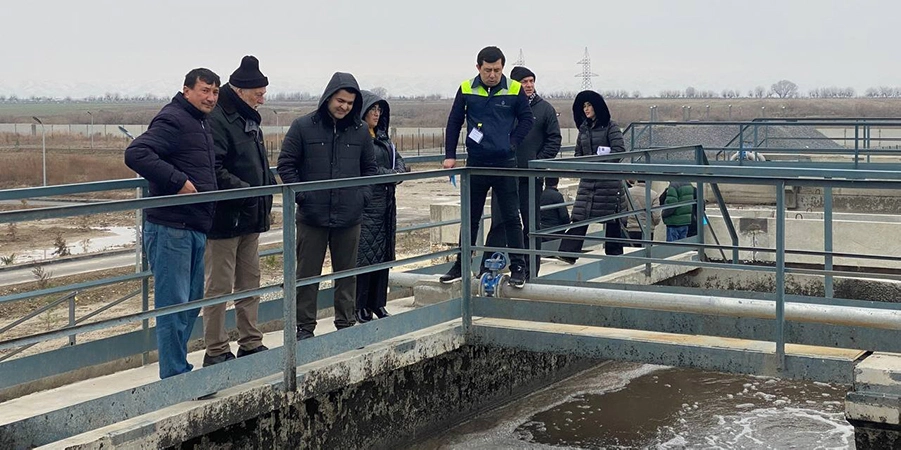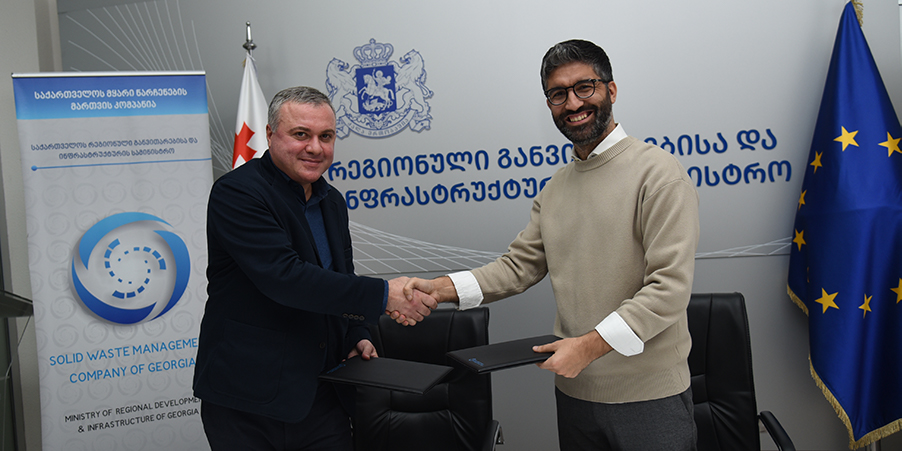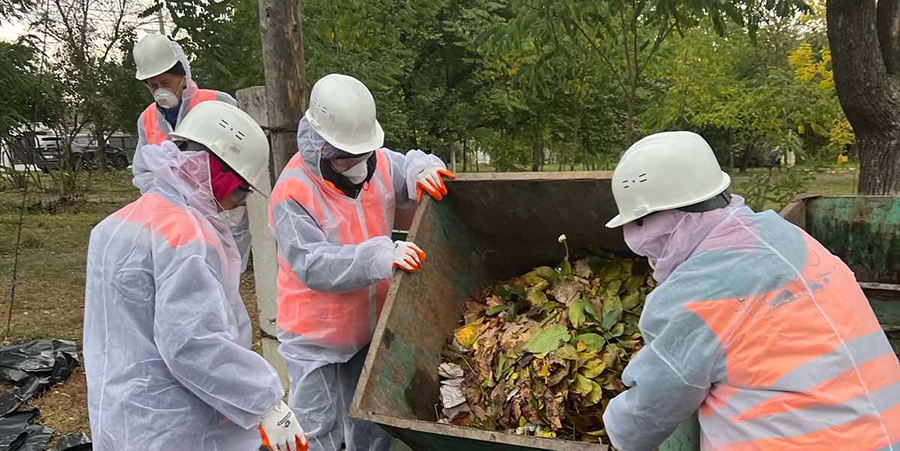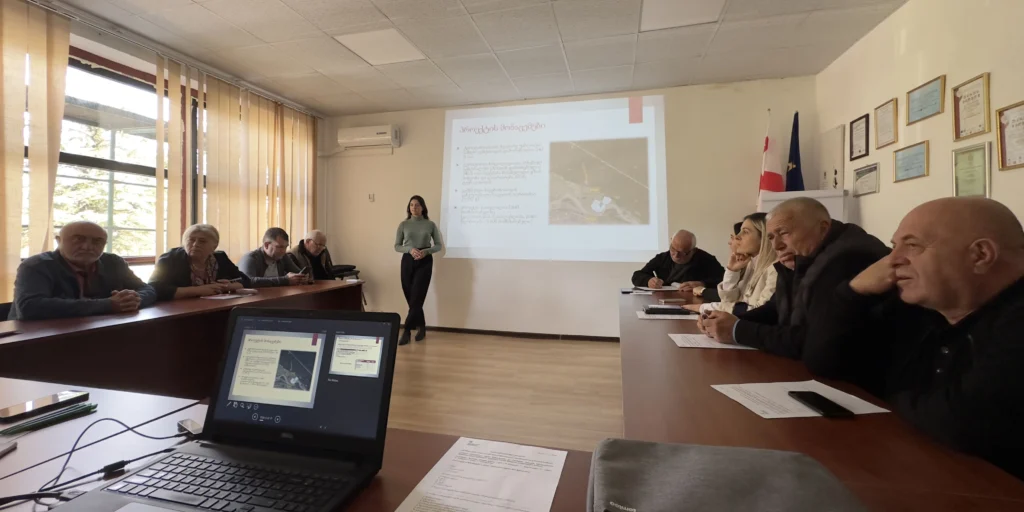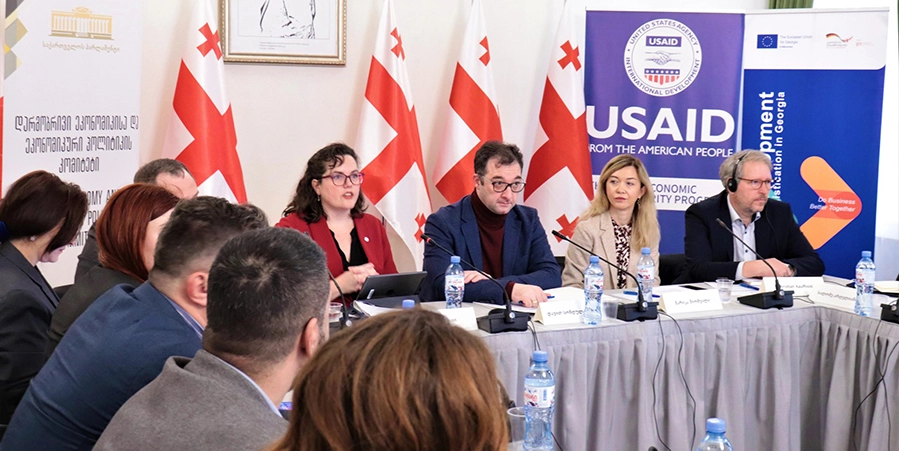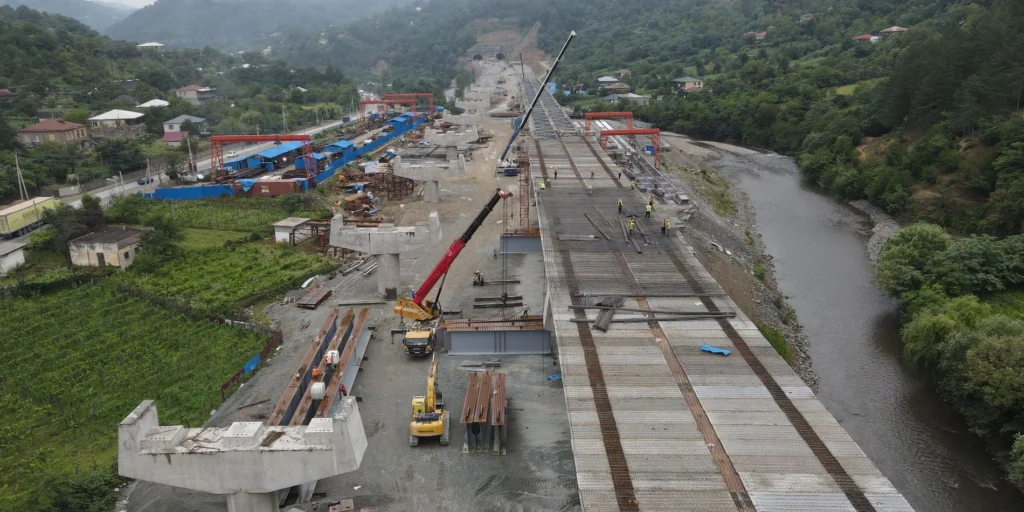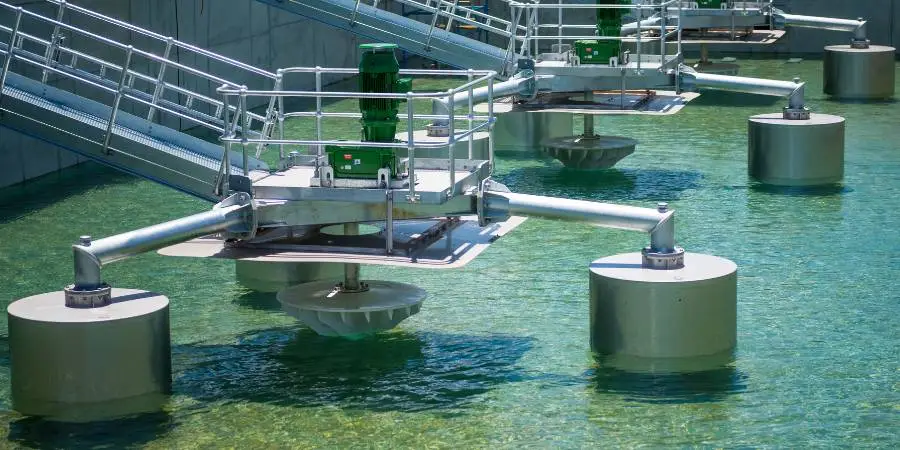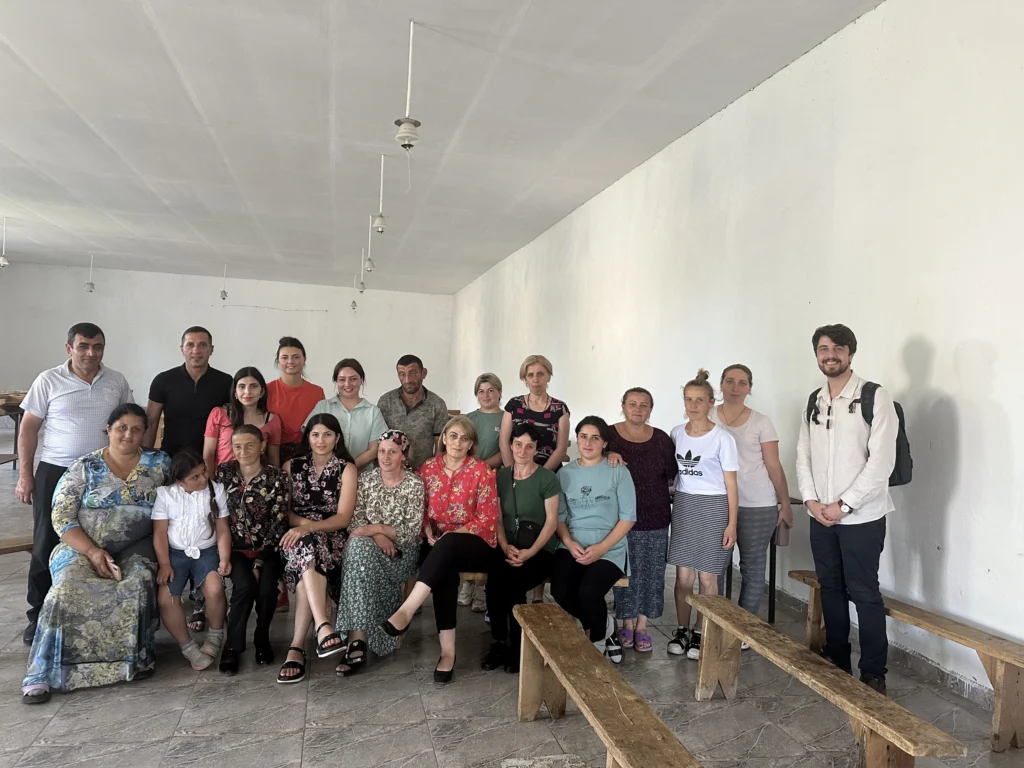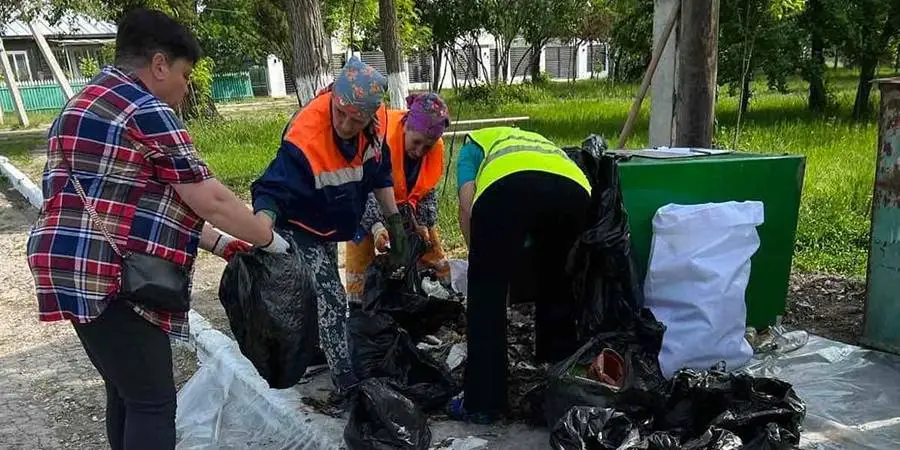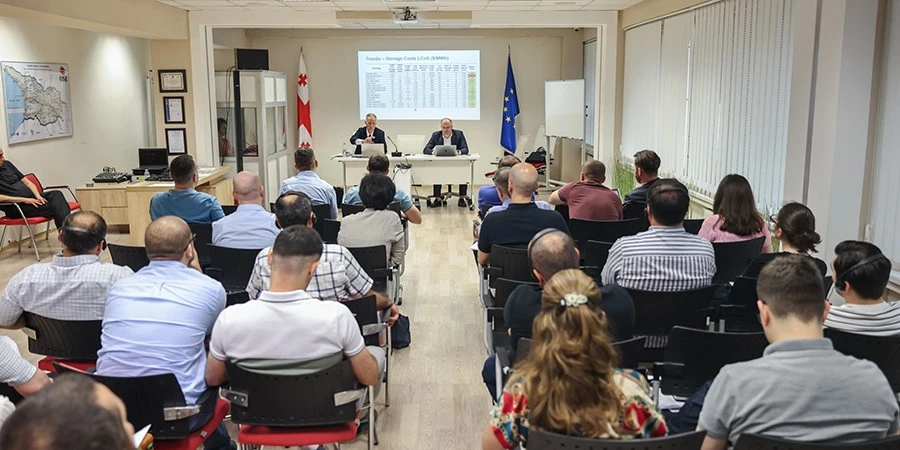Building a Greener Future: Insights on Green Cities and Sustainable Development – An Interview with Roni Kvatchadze
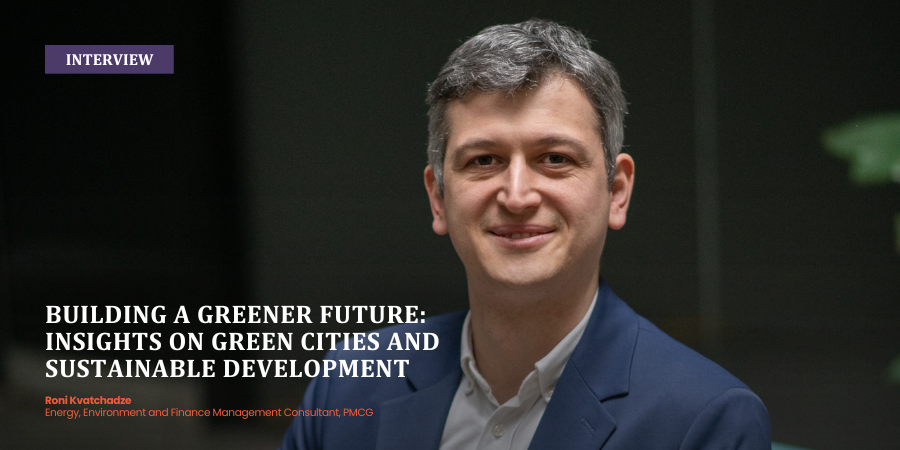

Energy, Environment and Finance Management Consultant at PMCG, Roni Kvatchadze possesses rich expertise in planning and implementing projects in various environmental aspects such as waste management and energy.
In the course of an already decade-long career, he has also held key positions at the Ministry of Energy of Georgia, where he helped to elaborate inclusive energy policies, and the Caucasus Environmental NGO Network (CENN), where he undertook comprehensive analysis of the prospects for recycling.
Continuing our focus on the green economy, we took some time out to tap into Roni’s knowledge on that subject in this interview from April 2024.
Q: How do you perceive the role of the green economy in fostering sustainable development and addressing environmental challenges?
Green economy principles are vital to sustainable development and dealing with environmental challenges. These principles encompass renewable energy, circular economy, sustainable agriculture, green infrastructure, resource efficiency, and biodiversity among other aspects. Along with economic benefits, a green economy also prioritizes environmental and social values for society, and I believe such an economy brings unique opportunities for development.
Q: What are some of the key obstacles that urban areas encounter in implementing green infrastructure projects, and how can these be overcome?
In modern societies, and especially in developing countries, realizing green infrastructure can be up against many barriers hindering its development. One of the main obstacles here is a lack of awareness as to what green infrastructure actually is. For example, most citizens, governments, policymakers, and other decision-makers do not fully understand the benefits of green infrastructure, and this can lead to such projects not being prioritized.
The sometimes high investment and operating costs associated with such projects can also be considered a significant obstacle. Moreover, besides the need for financial resources, maintenance requires substantial human capacity and knowledge as well. However, all of these challenges can be overcome if comprehensive policies are implemented in different directions, including the provision of proper financial incentives and public-private partnerships (PPPs), infrastructure planning, capacity building, and monitoring.
Q: How can green spaces contribute to enhancing the quality of life and environmental sustainability in densely populated cities?
Green spaces contribute markedly to urban areas and are critical components of a city’s resilience and sustainability. They support biodiversity and improve air quality, and help to reduce the temperature in dense urban areas. Personally, I, along with the majority of the population, prefer living near green spaces because this brings an increased standard of living and makes urban areas more pleasant places to live in. Furthermore, sustainable investment opportunities and economic activities can flourish near green spaces.
One of the best examples of integrating green space into urban life is the Spanish city of Valencia, where such spaces are now part of the transportation system. Indeed, Valencia has made great efforts to create new green spaces inside the city, and demolished many buildings and closed roads to do so. In the newly-created green spaces, city authorities made bike lanes, making cycling a more appealing means of transport, and more people “got on their bike” accordingly. This is a great example of how green spaces can contribute to better living standards, a better environment, CO2 emissions reduction, and greater sustainability.
Q: What are some of the innovative approaches to waste management and recycling that cities can adopt to minimize landfill waste and promote circular economy principles?
I think we can all agree that in every city and community waste reduction and elimination should be a top priority. Currently, the most important concepts in the waste sector are integrated waste management and the circular economy. The former basically entails proper management of waste during each stage, taking into account the “4Rs” – Reduce, Reuse, Recycle, and Recover. Meanwhile, the circular economy involves creating economic and business opportunities as well as offering circular business models, thus essentially serving as an implementation mechanism for sustainable waste management practices.
One of the most common schemes in the circular economy is extended producer responsibility (EPR), whereby producers are responsible for the end-of-life management of their products, such as packaging, vehicles, parts, waste oils, batteries and accumulators, and electronic waste. Usually, costs that arise after a product becomes waste are not considered by businesses, but, in a circular economy, products have to be managed throughout their whole lifecycle. For example, producers have to pay for recycling or other treatment procedures.
Another good example of a circular initiative is that of product-as-a-service models, where producers maintain ownership of the products and sell their service(s). Here, producers take back products from customers after their lifecycle expires, allowing them to perform maintenance works efficiently, among other benefits. Other notable approaches in the waste management sector are also waste-to-energy (WTE) technologies, mechanical biological treatment, and deposit refund systems (DRSs) which can be implemented in modern cities.
Q: In your opinion, what are the most pressing environmental challenges faced by cities today, and how can these be effectively addressed through policy interventions and community engagement?
The most common environmental challenges that cities face are air pollution, waste management, water resource scarcity and quality, and biodiversity reduction. We have talked about waste management already, so now I will focus on air pollution and water resource management. In urban areas, air pollution is mainly caused by emissions from vehicles and industrial objects. The resulting poor air quality causes many negative effects, including health problems. Regarding water resource management, I would like to highlight the problem of non-revenue water (NRW): in short, this refers to water used by consumers that is not paid for and water lost in the distribution network due to leakages. Uncontrolled NRW in cities can cause significant complications, such as water resource scarcity, reduced quality, and high maintenance costs. The NRW problem has become especially relevant since the effects of climate change began to emerge, with record-breaking droughts in many cities across Europe leading to significant difficulties.
To deal with these problems, we need very efficient policy interventions and community engagement. Accordingly, policy intervention should be oriented toward air pollution reduction from vehicles and industry alike, by introducing strict emissions standards, promoting green and public transportation, supporting renewable energy and greater energy efficiency, and bolstering water resource protection and conservation. In addition, community engagement is an effective means of dealing with the described environmental challenges for several reasons. Above all, the awareness of citizens plays a crucial role in the implementation of policy interventions, while the engagement of businesses and the private sector as a whole makes the decision-making process more target-oriented.
Q: What role do you believe international cooperation plays in advancing sustainability goals within the global and national economies?
Achieving environmental and climate goals demands substantial international cooperation. Projects and development initiatives of international organizations like the UN, international financial institutions such as the World Bank, the EBRD, the EIB, and KfW, as well as development organizations like USAID, GIZ, FCDO, and AFD are currently making notable strides toward implementing sustainable technologies, projects, and infrastructure. Such efforts also support knowledge sharing in developing countries where the experiences of advanced economies can be applied. Of course, in the fight against climate change, ending poverty, hunger, and other socio-economic challenges, the most important global initiative is the UN’s Sustainable Development Goals (SDGs).
